David Bowie His career of an actor 1

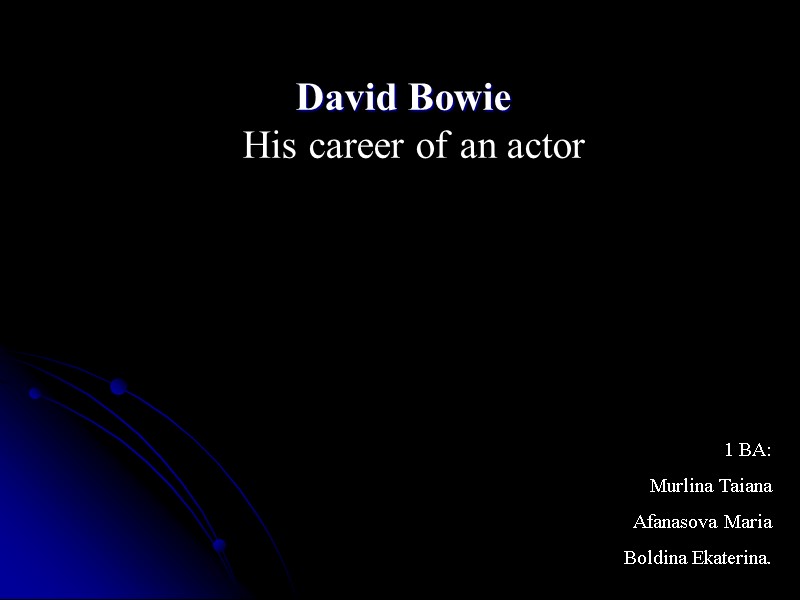
David Bowie His career of an actor 1 BA: Murlina Taiana Afanasova Maria Boldina Ekaterina.

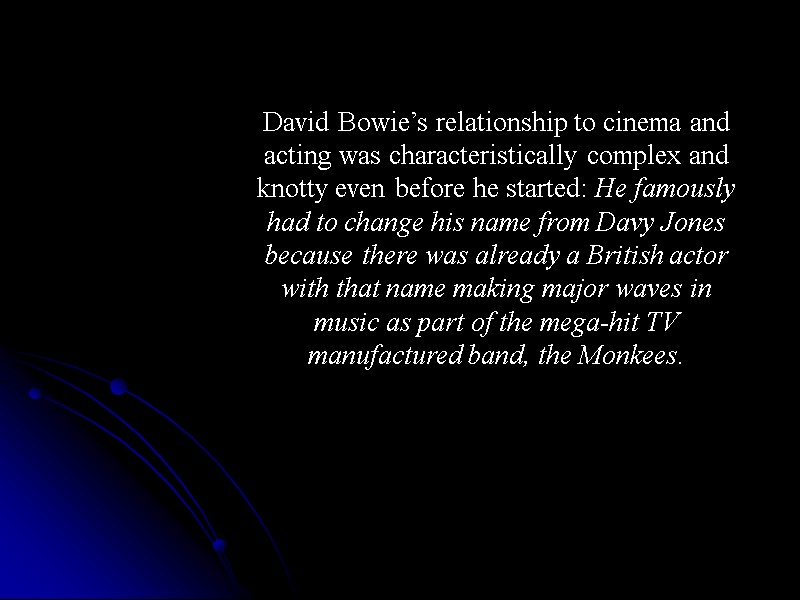
David Bowie’s relationship to cinema and acting was characteristically complex and knotty even before he started: He famously had to change his name from Davy Jones because there was already a British actor with that name making major waves in music as part of the mega-hit TV manufactured band, the Monkees.
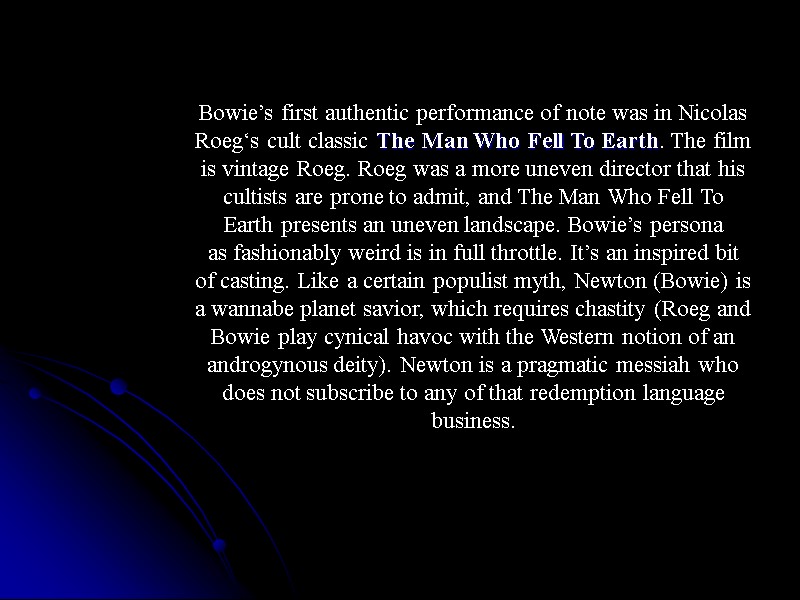
Bowie’s first authentic performance of note was in Nicolas Roeg‘s cult classic The Man Who Fell To Earth. The film is vintage Roeg. Roeg was a more uneven director that his cultists are prone to admit, and The Man Who Fell To Earth presents an uneven landscape. Bowie’s persona as fashionably weird is in full throttle. It’s an inspired bit of casting. Like a certain populist myth, Newton (Bowie) is a wannabe planet savior, which requires chastity (Roeg and Bowie play cynical havoc with the Western notion of an androgynous deity). Newton is a pragmatic messiah who does not subscribe to any of that redemption language business.
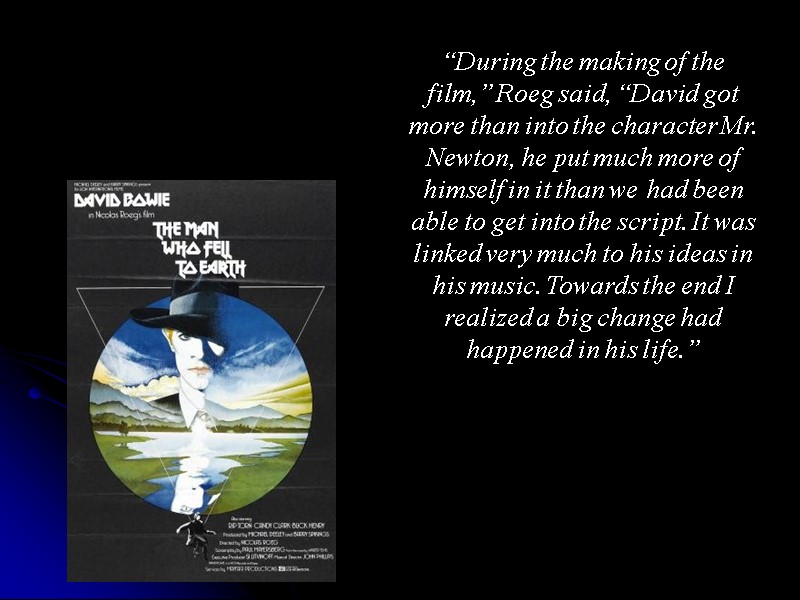
“During the making of the film,” Roeg said, “David got more than into the character Mr. Newton, he put much more of himself in it than we had been able to get into the script. It was linked very much to his ideas in his music. Towards the end I realized a big change had happened in his life.”
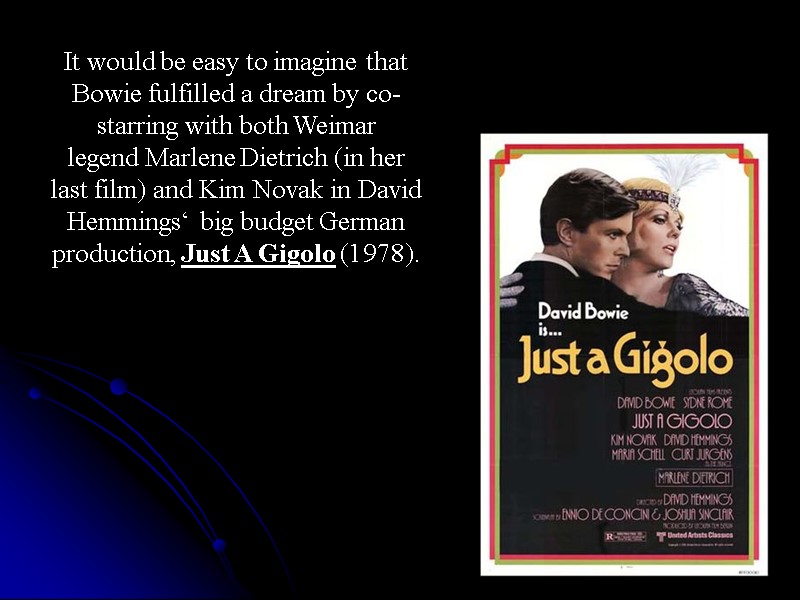
It would be easy to imagine that Bowie fulfilled a dream by co-starring with both Weimar legend Marlene Dietrich (in her last film) and Kim Novak in David Hemmings‘ big budget German production, Just A Gigolo (1978).

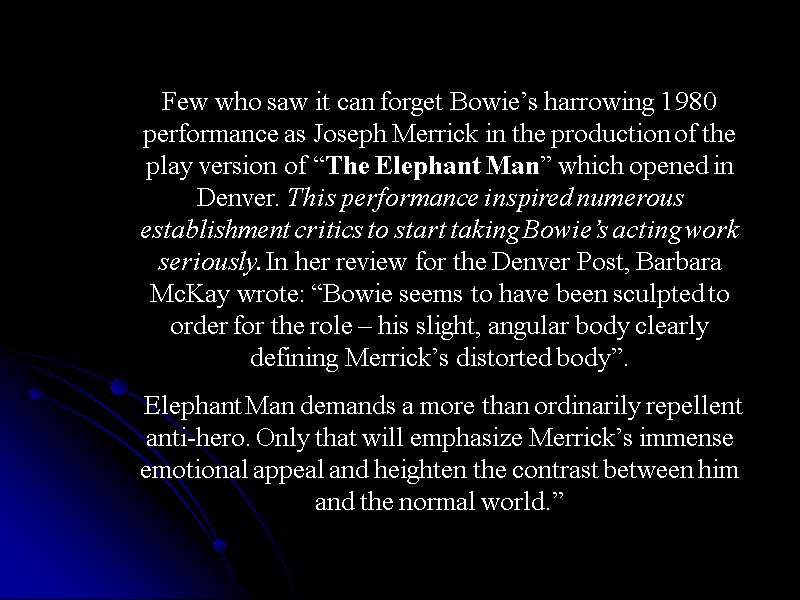
Few who saw it can forget Bowie’s harrowing 1980 performance as Joseph Merrick in the production of the play version of “The Elephant Man” which opened in Denver. This performance inspired numerous establishment critics to start taking Bowie’s acting work seriously. In her review for the Denver Post, Barbara McKay wrote: “Bowie seems to have been sculpted to order for the role – his slight, angular body clearly defining Merrick’s distorted body”. Elephant Man demands a more than ordinarily repellent anti-hero. Only that will emphasize Merrick’s immense emotional appeal and heighten the contrast between him and the normal world.”
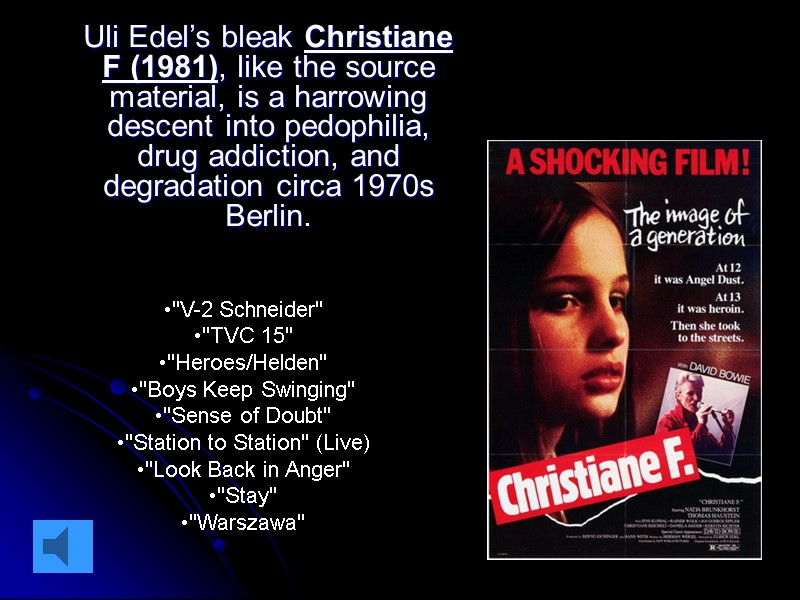
Uli Edel’s bleak Christiane F (1981), like the source material, is a harrowing descent into pedophilia, drug addiction, and degradation circa 1970s Berlin. "V-2 Schneider" "TVC 15" "Heroes/Helden" "Boys Keep Swinging" "Sense of Doubt" "Station to Station" (Live) "Look Back in Anger" "Stay" "Warszawa"
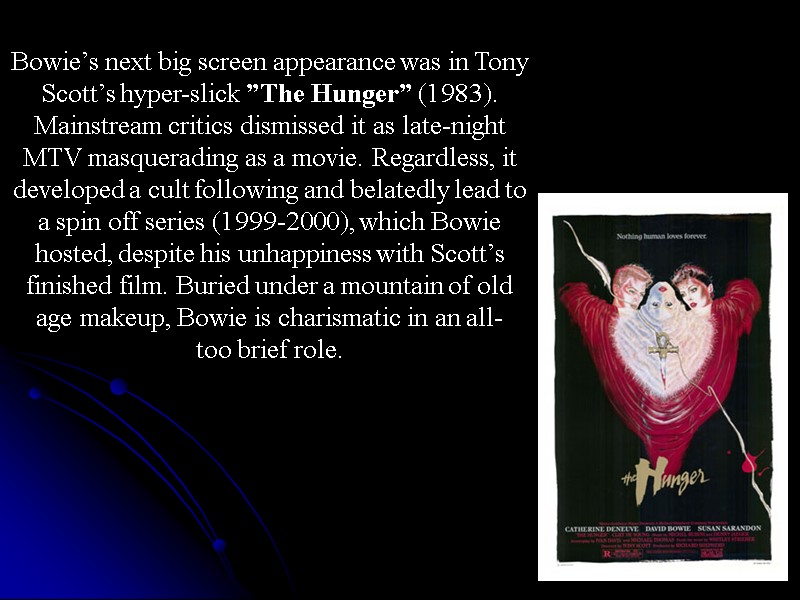
Bowie’s next big screen appearance was in Tony Scott’s hyper-slick ”The Hunger” (1983). Mainstream critics dismissed it as late-night MTV masquerading as a movie. Regardless, it developed a cult following and belatedly lead to a spin off series (1999-2000), which Bowie hosted, despite his unhappiness with Scott’s finished film. Buried under a mountain of old age makeup, Bowie is charismatic in an all-too brief role.
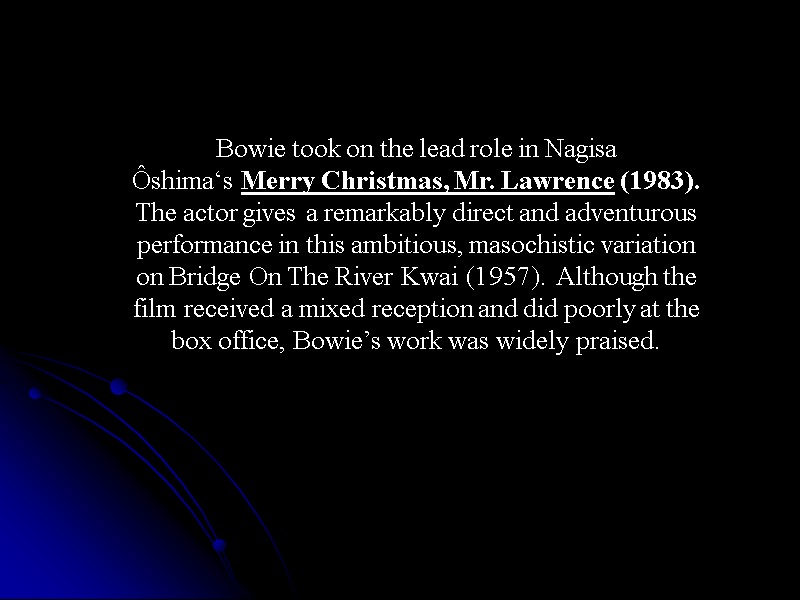
Bowie took on the lead role in Nagisa Ôshima‘s Merry Christmas, Mr. Lawrence (1983). The actor gives a remarkably direct and adventurous performance in this ambitious, masochistic variation on Bridge On The River Kwai (1957). Although the film received a mixed reception and did poorly at the box office, Bowie’s work was widely praised.
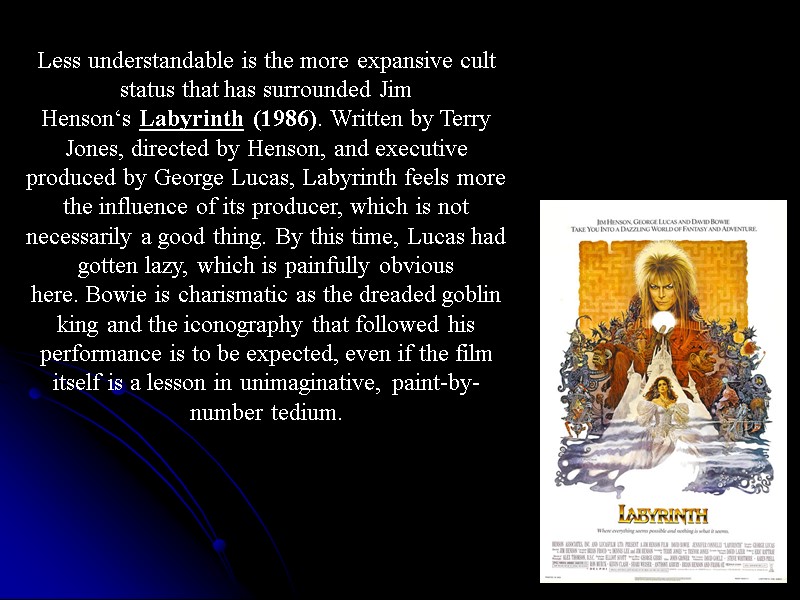
Less understandable is the more expansive cult status that has surrounded Jim Henson‘s Labyrinth (1986). Written by Terry Jones, directed by Henson, and executive produced by George Lucas, Labyrinth feels more the influence of its producer, which is not necessarily a good thing. By this time, Lucas had gotten lazy, which is painfully obvious here. Bowie is charismatic as the dreaded goblin king and the iconography that followed his performance is to be expected, even if the film itself is a lesson in unimaginative, paint-by-number tedium.
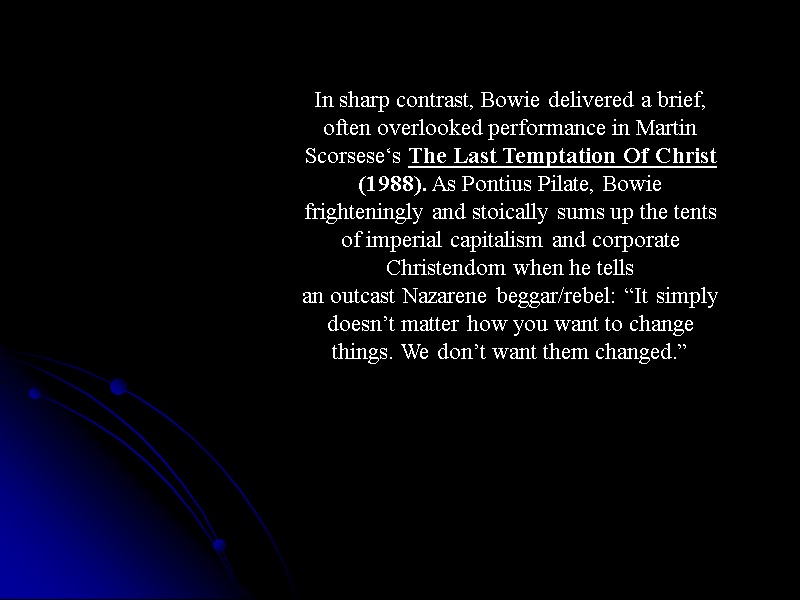
In sharp contrast, Bowie delivered a brief, often overlooked performance in Martin Scorsese‘s The Last Temptation Of Christ (1988). As Pontius Pilate, Bowie frighteningly and stoically sums up the tents of imperial capitalism and corporate Christendom when he tells an outcast Nazarene beggar/rebel: “It simply doesn’t matter how you want to change things. We don’t want them changed.”

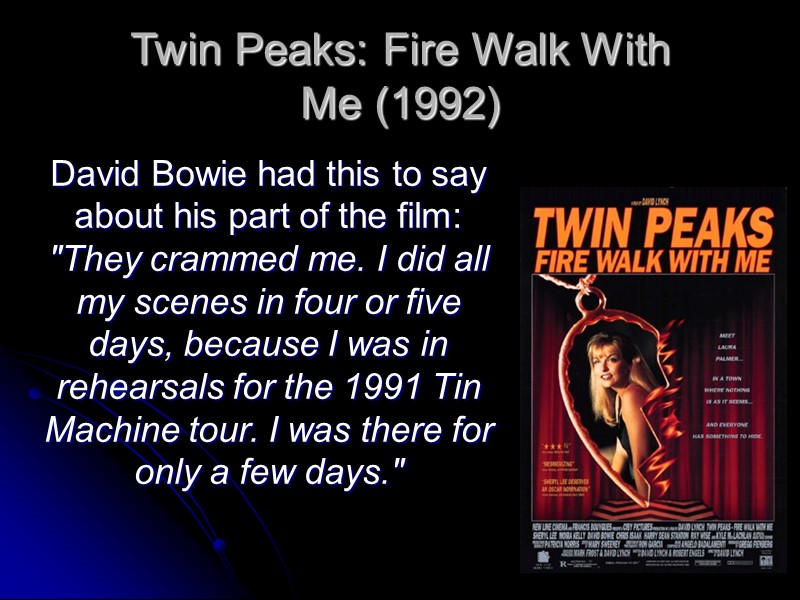
Twin Peaks: Fire Walk With Me (1992) David Bowie had this to say about his part of the film: "They crammed me. I did all my scenes in four or five days, because I was in rehearsals for the 1991 Tin Machine tour. I was there for only a few days."
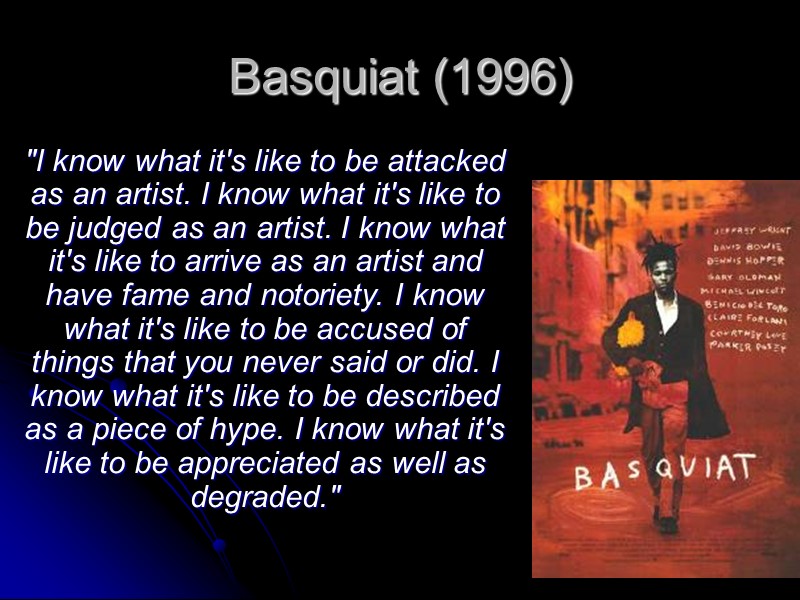
Basquiat (1996) "I know what it's like to be attacked as an artist. I know what it's like to be judged as an artist. I know what it's like to arrive as an artist and have fame and notoriety. I know what it's like to be accused of things that you never said or did. I know what it's like to be described as a piece of hype. I know what it's like to be appreciated as well as degraded."
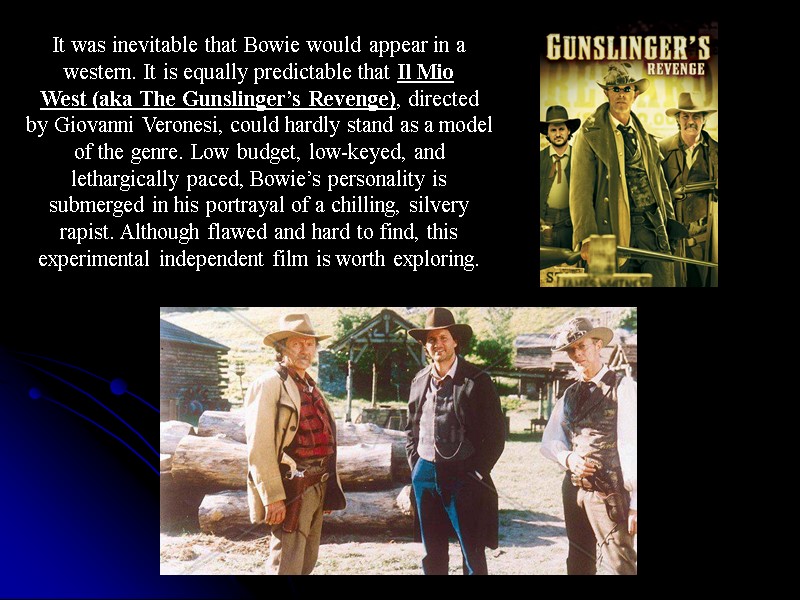
It was inevitable that Bowie would appear in a western. It is equally predictable that Il Mio West (aka The Gunslinger’s Revenge), directed by Giovanni Veronesi, could hardly stand as a model of the genre. Low budget, low-keyed, and lethargically paced, Bowie’s personality is submerged in his portrayal of a chilling, silvery rapist. Although flawed and hard to find, this experimental independent film is worth exploring.
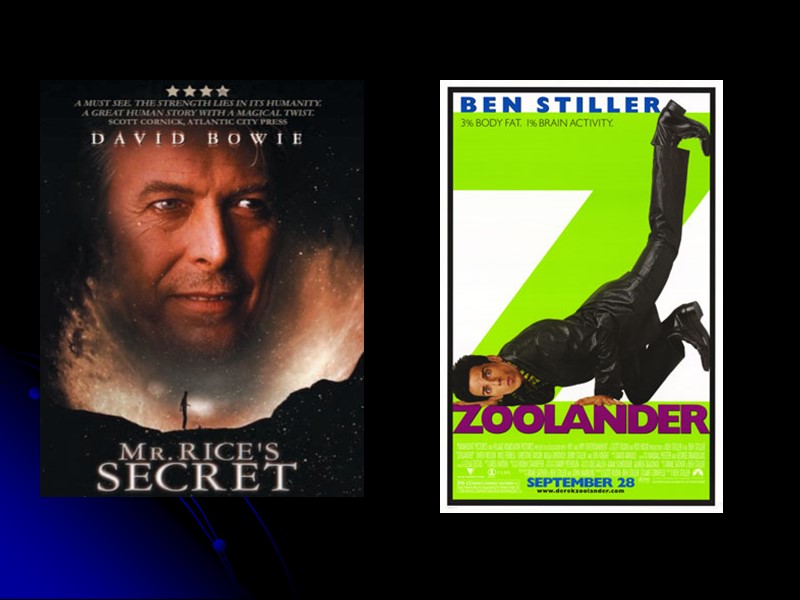
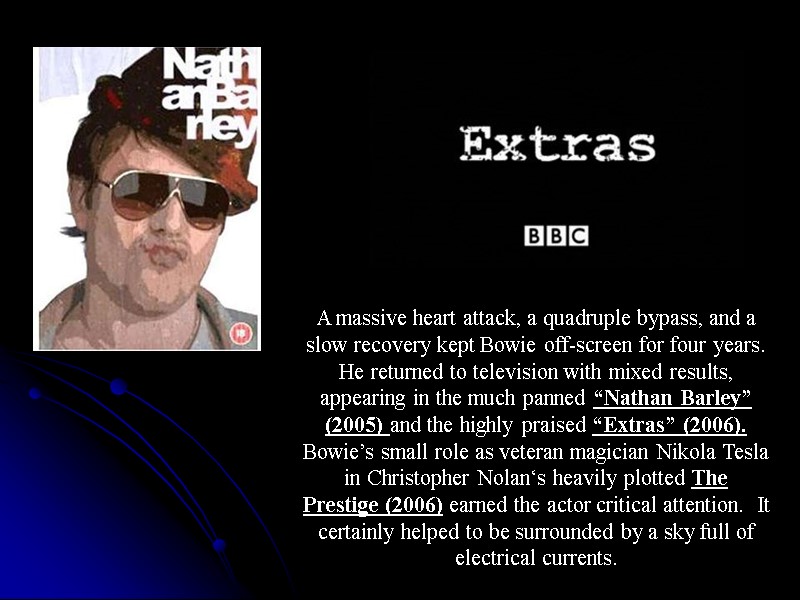
A massive heart attack, a quadruple bypass, and a slow recovery kept Bowie off-screen for four years. He returned to television with mixed results, appearing in the much panned “Nathan Barley” (2005) and the highly praised “Extras” (2006). Bowie’s small role as veteran magician Nikola Tesla in Christopher Nolan‘s heavily plotted The Prestige (2006) earned the actor critical attention. It certainly helped to be surrounded by a sky full of electrical currents.
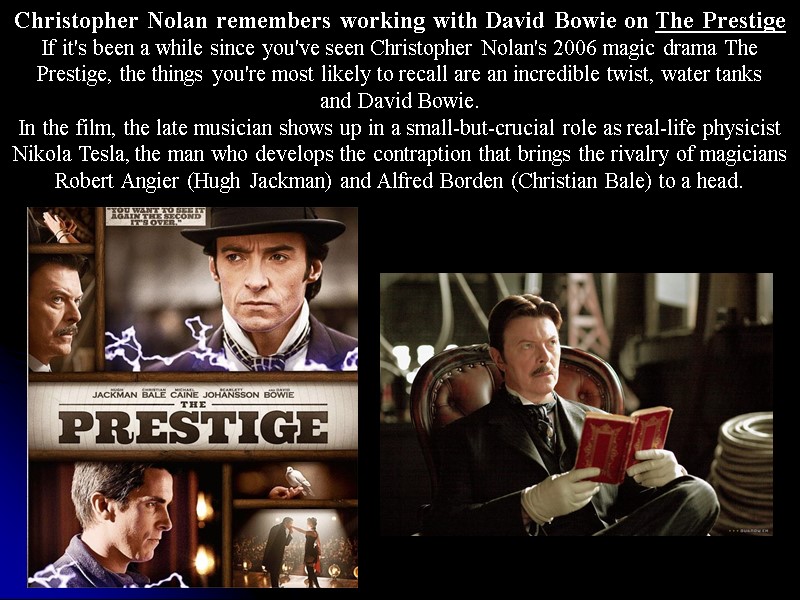
Christopher Nolan remembers working with David Bowie on The Prestige If it's been a while since you've seen Christopher Nolan's 2006 magic drama The Prestige, the things you're most likely to recall are an incredible twist, water tanks and David Bowie. In the film, the late musician shows up in a small-but-crucial role as real-life physicist Nikola Tesla, the man who develops the contraption that brings the rivalry of magicians Robert Angier (Hugh Jackman) and Alfred Borden (Christian Bale) to a head.
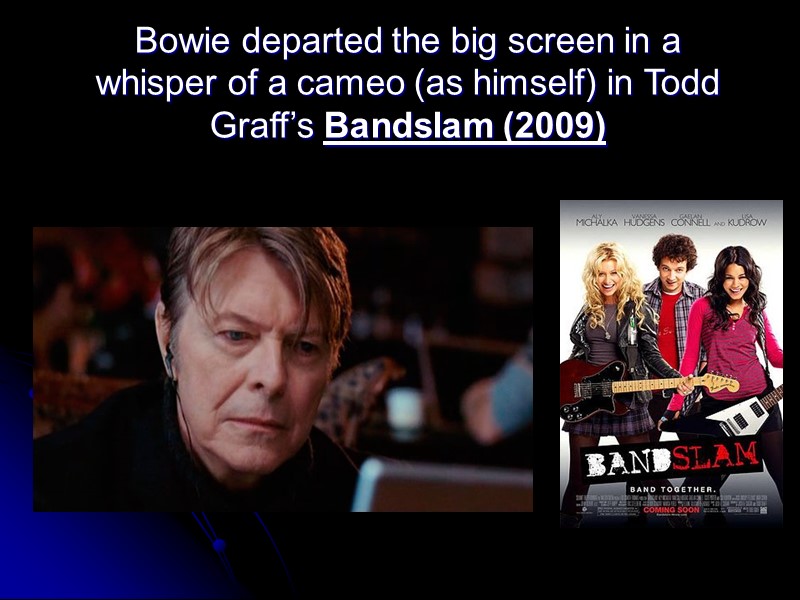
Bowie departed the big screen in a whisper of a cameo (as himself) in Todd Graff’s Bandslam (2009)

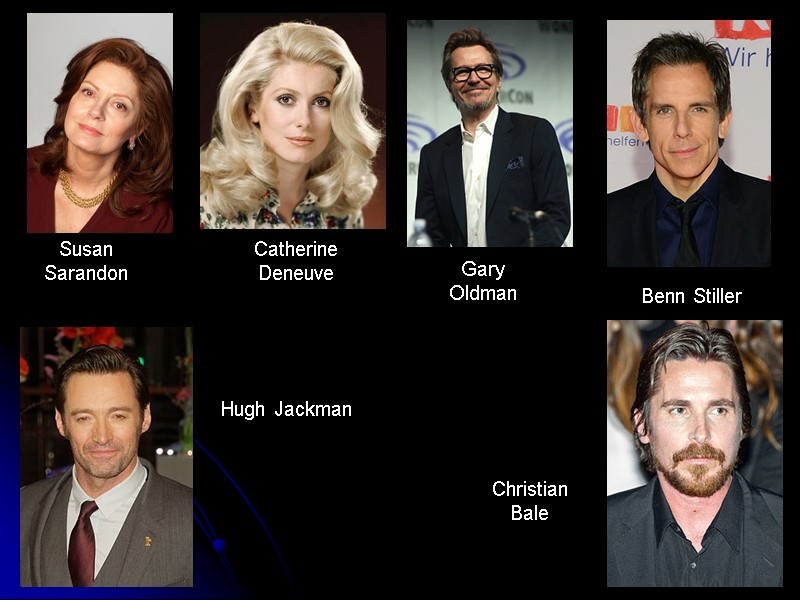
Susan Sarandon Catherine Deneuve Gary Oldman Benn Stiller Hugh Jackman Christian Bale
23816-david_bowie.ppt
- Количество слайдов: 23

